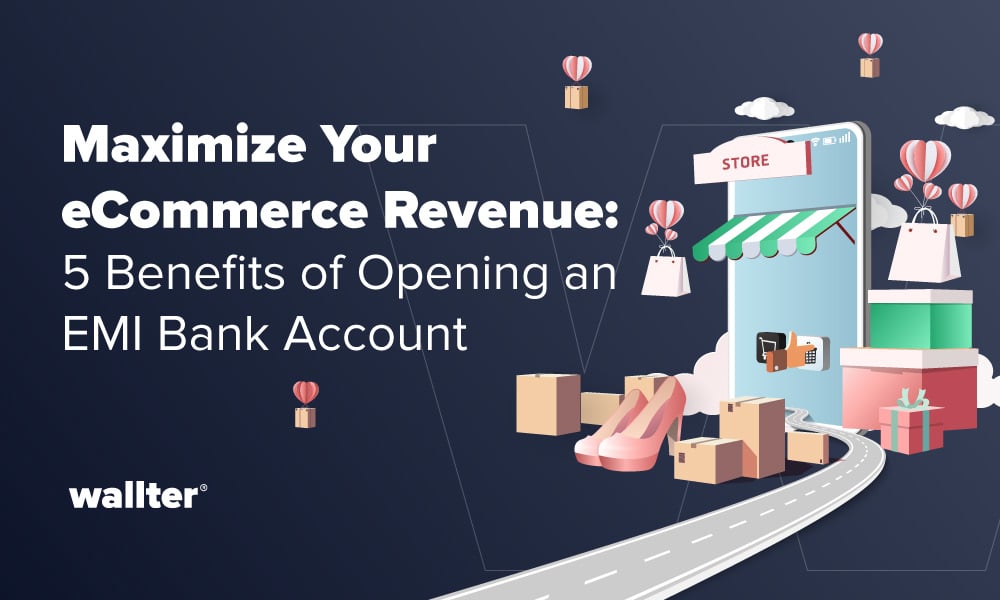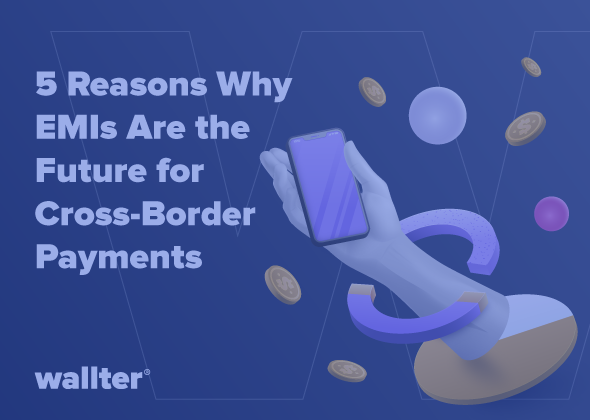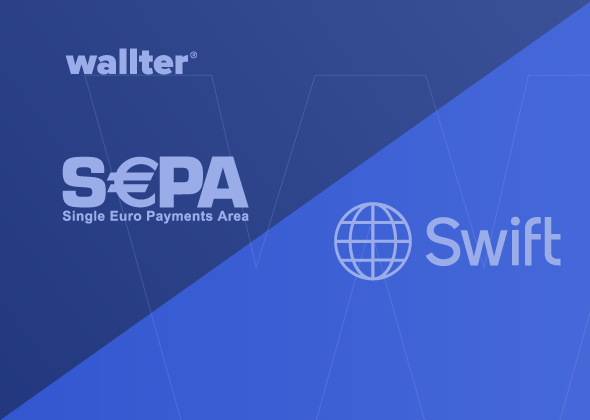According to a study by Juniper Research, global spend on cross-border B2B payments is expected to surpass $40 trillion by the end of 2024, marking a growth of 9% ($3 trillion) from the 2022 figures. This surge is largely attributed to the increasing popularity of eCommerce marketplaces, which allow merchants to sell goods internationally through locally-based eCommerce services. While this presents new opportunities, it also introduces challenges in terms of cross-border payments and currency exchange.
To tackle these issues, opening a bank account at an electronic money institution (EMI), such as Wallter, can be a viable solution. In this blog post, we’ll explore the benefits that eCommerce marketplaces can avail by opening an EMI account, especially those selling goods internationally via locally-based eCommerce services.
1. Cost Savings
Opening a bank account at an EMI can lead to significant cost savings for eCommerce marketplaces. Traditional banks often charge high fees for international wire transfers and currency exchange, which can eat into profits. In contrast, EMIs offer more competitive exchange rates and lower fees for international transactions. This can translate into significant savings for eCommerce marketplaces, especially those that operate on thin profit margins.
2. Faster Payments
One of the biggest challenges with international payments is the time it takes for funds to clear. Traditional banks can take several days or even weeks to process international wire transfers, which can create cash flow issues for eCommerce marketplaces. In contrast, EMIs typically offer faster payment processing times, with some transactions settling in real time. This can help eCommerce marketplaces to better manage their cash flow and ensure they have the funds they need to operate their business.
3. Better FX Rates
Currency exchange rates can fluctuate rapidly, which can make it challenging for eCommerce marketplaces to predict their costs and revenue when conducting business across borders. Traditional banks often charge high fees for currency exchange and may offer less competitive exchange rates than EMIs. By opening a bank account at an EMI, eCommerce marketplaces can access more competitive exchange rates, which can help them to better manage their costs and improve their profit margins.
4. Enhanced Security
EMIs are subject to rigorous regulatory requirements, which helps to ensure the safety and security of customer funds. Additionally, EMIs often use advanced security measures such as two-factor authentication and encryption to protect customer data and transactions. This can provide peace of mind for eCommerce marketplaces that want to ensure their funds and customer data are secure.
5. Increased Flexibility
Traditional banks often have rigid processes and requirements for opening and managing accounts, which can make it challenging for eCommerce marketplaces to adapt to changing business needs. In contrast, EMIs often offer more flexibility in terms of account management, payment processing, and currency exchange. This can help eCommerce marketplaces to more easily adapt to changing business needs and take advantage of new opportunities as they arise.
In conclusion, eCommerce marketplaces selling goods internationally via locally based eCommerce services can benefit greatly by opening a bank account at an electronic money institution (EMI), such as Wallter. EMIs offer cost savings, faster payment processing times, better FX rates, enhanced security, and increased flexibility. By leveraging these benefits, eCommerce marketplaces can better manage their cash flow, improve their profit margins, and grow their business on a global scale.
Ready to maximize your eCommerce profits? Open your Wallter account now, start here!



